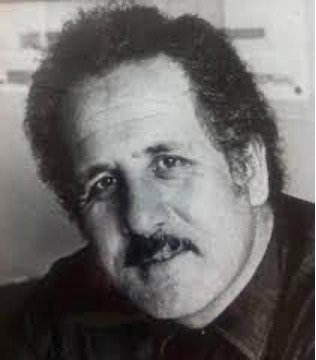Celebrating 50 years of Māori studies at UC: A Legacy of Student Advocacy
Years of Canta and Chronicle publications introducing Māori Studies at UC.
PHOTO: Isla Melton
Fifty years ago, on the third of March 1975, at 5:00pm the University of Canterbury held its first-ever Māori studies class.
The milestone was the culmination of years of student-led activism, reflecting the growing recognition of the importance of Māori language and culture in Aotearoa’s education system.
As we celebrate half a century of Māori studies at UC, it is crucial to acknowledge those who fought tirelessly to make it happen.
In the early 1970’s, the push for Māori studies gained momentum as other universities began incorporating the subject.
At UC, students were at the forefront of advocacy, demanding the university take action.
In a 2023 article The Press shared, 'How Ngāi Tahu had to push the University of Canterbury into a bicultural relationship,’ it was reported a Students’ Association referendum in 1971 saw overwhelming support. “More than 3000 students from a total roll of 6300 voted in favour of a Māori Studies course at Canterbury, and only 179 students were against.”
Despite the strong backing from students, progress was slow.
Articles published in Canta from 1970 acted as a form of protest, with students arguing if Māori studies were not going to be taught in the classroom, they would educate themselves, and fellow students, through publication.
In 1972 Canta discussed ‘Māori Language Day’ highlighting how “there are about 30 Māori students at the University of Canterbury, so I think it is safe to assume that nearly all of us, including lecturers, are pretty dumb in our knowledge about all things Māori.”
“I think we had better get our A into G and try get to know and understand Māori people and Māoritanga,” the unnamed Canta author wrote.
The introduction of Māori studies at UC was shaped by influential figures such as Te Awaroa (Bill) Nepia from Ngāti Porou.
Te Awaroa Nepia, known by most as Bill.
PHOTO: Supplied by Jeanette King.
Appointed as UC’s first Māori Studies lecturer in 1974, Nepia played a pivotal role in laying the foundations for the program.
Before beginning his tenure, he visited local Ngāi Tahu rangatira Riki Ellison at Taumutu to pay respects and establish connection, acknowledging the significance of teaching Māori studies on Ngāi Tahu land.
The first lecture in 1975 was met with great enthusiasm, drawing a mix of students and community members eager to engage with Te Reo Māori culture.
Professor at Aotahi school of Māori and Indigenous studies, Jeanette King, who started studying at UC in the late 1970s and was taught by Nepia told Canta about the dramatic moment when he was introduced at a Faculty of Arts meeting.
Jeanette King spent a long-time gathering information regarding the introduction of Māori studies at UC.
PHOTO: Supplied by Jeanette King.
As Nepia introduced himself in Te Reo Māori - likely the first time many in the room had heard the language spoken fluently – an earthquake shook the building.
“It was very dramatic, King said. “Like hello, Māori studies has arrived.”
Despite its eventual establishment, Māori studies at UC faced challenges in its early years.
The program originally combined language and cultural studies, but has since evolved to offer distinct courses in both areas.
During the 1990’s, Te Reo Māori was often taught through textbooks, rather than immersive oral methods.
However, in recent years, the focus has shifted toward greater oral proficiency, reflecting the best practices in language revitalization.
The South Island, with its predominantly Pākeha population, has historically had fewer Māori speakers than the North Island.
This made the introduction and growth of Māori studies at UC even more significant, as it provided a critical space for language learning and cultural engagement in a region where opportunities at the time were limited.
Reflecting on the impact of student advocacy, King emphasized the power of collective action.
“I was really aware of what the student voice had achieved,” she said.
“It’s good for the younger generation to be reminded that we can change things, and that if we all get together and stand up and use our voices, we can be agents of change.”
As we mark 50 years of Māori studies at UC, it is essential to honour the students, educators and community members who made it possible.
Their efforts not only established a vital academic discipline but also contributed to the broader movement for the recognition and revitalisation of Te Reo Māori and Māori culture.
Looking forward, the legacy of advocacy and commitment to biculturalism at UC remains as important as ever, ensuring the next 50 years build upon this foundation of learning, respect, and empowerment.



